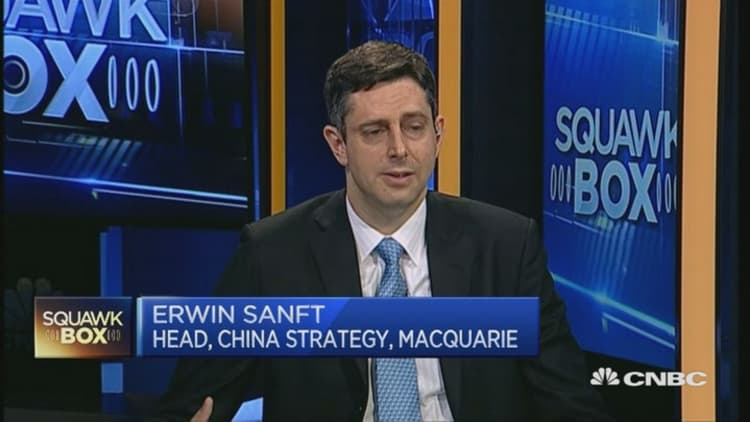If you thought 2015 was bad for Chinese equity markets, this year's started on an even more rocky note.
January was the worst month for shares listed on the mainland since 2008, according to data compiled by spread betting firm IG.
The benchmark Shanghai Composite index tanked more than 24 percent last month while the Shenzhen Composite tumbled 27 percent, taking the title of Asia's worst-performing indices in what has been a tumultuous start to the year.
Concerns about the direction of the renminbi, confusing communication from policymakers and fresh signs of slowing economic growth have spurred investors to trim riskier bets, exacerbating a global equity sell-off.
During the first week of the year, the People's Bank of China allowed the biggest fall in the yuan in five months, twice triggering a circuit breaker that saw markets close early. Beijing has since suspended the mechanism amid fears it only increased investor jitters about the health of markets.
Since Beijing's landmark currency devaluation last August, officials have repeated their commitment to a more market-oriented yuan but repeated central bank intervention and lower daily fixings earlier this month created confusion about China's intentions. The seemingly contradictory messages and lack of an articulate endgame have led some to question leadership at the PBOC as leaders grapple between prioritizing market stability and structural reforms.
The second week of January then saw Chinese stocks enter a bear market, sliding 20 percent from a high hit in December, followed by the release of weak 2015 full- year economic figures. With gross domestic product growth slowing to a 25-year low of 6.9 percent, panic selling intensified.
"China been at the epicenter of the turbulence in financial markets since the start of this calendar year as investors worry about its slowdown as it transitions from a credit-fuelled investment-led economy to one that's driven by consumption and services," said Vasu Menon, vice president of wealth management at OCBC Bank.

"More than just concerns of a slowdown, market reforms in China have caused sharp falls in its stock and currency markets, resulting in some clumsy and disappointing policy moves which have shaken confidence in the ability of Chinese policy makers. It will take time for China to restore confidence in its stock markets, currency and economy and the interim uncertainty, could cause significant volatility in markets in the year ahead."
After stocks experienced a three-month long rout last year, the government unleashed a shock-and-awe state rescue campaign consisting of liquidity-boosting measures aimed at improving confidence but January's monthly losses likely saw officials return to the drawing board.
Markets with high level of exposure to mainland investors and China's overall economy suffered the biggest knock-on effects within Asia.
Hong Kong's Hang Seng Index tanked 11 percent in January, the second-worst monthly performance since 2008, IG said. Singapore's Straits Times Index meanwhile lost more than 9 percent.


